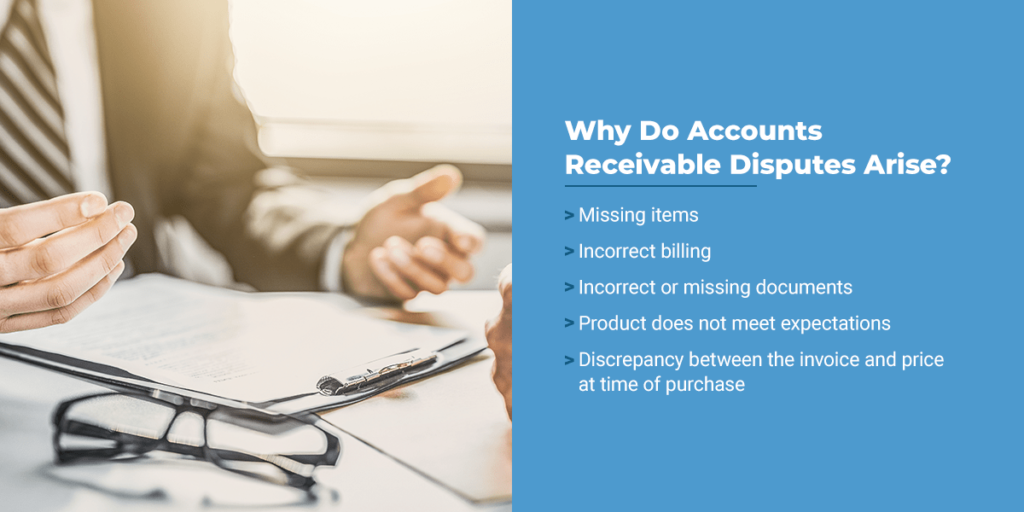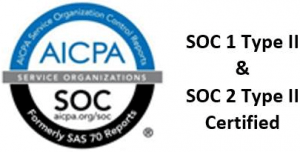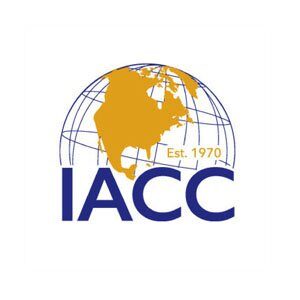Customer disputes over invoices occur when customers claim they are not responsible for paying an invoice. Accounts receivable disputes can have a negative effect on your business’s cash flow and affect your financial health, which is why establishing collections processes is essential for your company’s accounts receivable. By doing so, you can ensure a healthy cash flow, get your invoices paid, and preserve customer relationships.
Learn more about accounts receivable dispute management and why resolution is important, different types of invoice disputes, why these disputes occur and how they are resolved and managed, and what challenges you may face in the process.
What Is Accounts Receivable Dispute Management?
In accounts receivable, dispute management is a process that involves researching and resolving discrepancies in billing statements and invoices. Many businesses must record accounts receivable and manage customer transactions that haven’t yet been paid in full. While payments are often expected right away, some are made on credit, and clients may dispute part of the charge.
Customers can cite a wide range of reasons why they aren’t responsible for paying an invoice. These disputes should be actively managed and quickly resolved to maintain a healthy cash flow. Overdue invoices can quickly turn into bad debt unless you resolve them in a timely manner.
Why Is Accounts Receivable Dispute Resolution Important?
For any business, accounts receivable is a critical aspect of operations. There are several reasons why a business might extend credit to clients, such as expanding its customer base, establishing goodwill, and building trust between the customer and brand. Disputes are common, but if you manage them well, you can minimize the impact on your business and your customer relationships. If the dispute resolution doesn’t satisfy the client, this could harm your customer relations and negatively impact future business.
Accounts receivable dispute resolution is crucial for maintaining your business’s cash flow so you can continue meeting your ongoing financial obligations.
Types of Invoice Disputes
Before you can determine how to resolve invoice disputes efficiently, you should be aware of the different types of disputes. Popular reasons that customers dispute invoices include:
- Quality disputes
- Pricing disputes
- Double billing disputes
- Administrative disputes
- Shipment or unaccounted goods disputes
Why Do Accounts Receivable Disputes Arise?
In some cases, customers believe they are not actually responsible for paying an invoice. To successfully resolve these disputes, it’s important to understand why they occur in the first place.
Accounts receivable disputes may occur for the following reasons:
- Missing items: A customer is likely to dispute an accounts receivable if items are missing or not accounted for.
- Incorrect billing: A dispute may arise due to issues with billing, such as a double-billed item.
- Incorrect or missing documents: A customer may make an administrative dispute if they believe relevant documents are inaccurate or missing.
- Product does not meet expectations: If the quality or quantity of the item doesn’t meet the customer’s expectations, they may dispute the accounts receivable. For example, a customer may claim that the wrong goods were shipped or the goods arrived damaged.
- Discrepancy between the invoice and price at time of purchase: If the customer notes that the price of the invoiced item doesn’t match what they agreed to pay at the time of purchase, they may file a dispute.
How Are Accounts Receivable Disputes Resolved?
The process of resolving accounts receivable disputes includes these eight steps:
- Receive the dispute: First, your company will receive the customer dispute.
- Track the dispute: Next, your accounts receivable team should code, prioritize, and track the dispute.
- Gather information: You should then collect all of the information and data related to the dispute.
- Analyze the dispute information: Analyze the information you’ve collected to identify the root cause of the dispute.
- Request additional information: Depending on the situation, you may need to request additional information from the customer disputing their invoice.
- Evaluate the dispute: After you gather all the relevant information, assess the dispute and identify the appropriate determination.
- Obtain management approval: Next, your team may need to request management approval to resolve the dispute.
- Inform the customer about the resolution: The final step of the accounts receivable dispute management process is communicating the resolution to your customer and making any necessary adjustments.
How to Manage Accounts Receivable Disputes
An efficient accounts receivable dispute management process saves you time and helps support positive customer relations. To successfully manage disputes, the process should involve the following:
- Review payment terms: Carefully review credit policies and payment terms to minimize billing and pricing disputes from customers.
- Automate your accounting: Consider automating your accounts receivable and accounting, including data analytics. Automation can help your business process accounts receivable more quickly and efficiently if a dispute occurs.
- Review invoicing before shipment: Create a standardized process for reviewing the pricing, invoicing, and delivery of the item before shipment.
- Communicate with the customer: Proactively communicate with your customers to avoid accounts receivable becoming overdue and customers filing disputes.
Challenges of Accounts Receivable Dispute Resolution
You may face challenges related to your company’s accounts receivable dispute resolution, such as:
- Lack of full payments: Customers may retract part of a payment or refrain from making a payment in full for an item purchased. In some cases, you may never be paid in full for a product you sold.
- Time-consuming research: When it comes to the research required for dispute resolution, the process can be costly, labor-intensive, and time-consuming.
- Strained customer relations: Disputes can strain customer relations, which can negatively impact your business.
- Lack of collaboration between departments: To successfully gather information from different sources, all departments need to be communicating and working collaboratively to determine the cause of the dispute. If there is a lack of collaboration, pinpointing the origin of the dispute may be more challenging.
Contact Altus for Help With the Dispute Resolution Process
At Altus, we serve companies nationwide with our commercial collections services. With more than 200 collections professionals and over three decades of experience, we provide financial services you can rely on. Our ARM STRONG™ platform accelerates cash flow and automates debt collection with many features like:
- Easy payments
- Customer portal
- Security and encryption
- Communication monitoring
- And more!
With ARM STRONG, you can eliminate delays and pain points for your organization. Contact us today to learn more about the commercial collections services we offer and how our team of collection experts can help.







